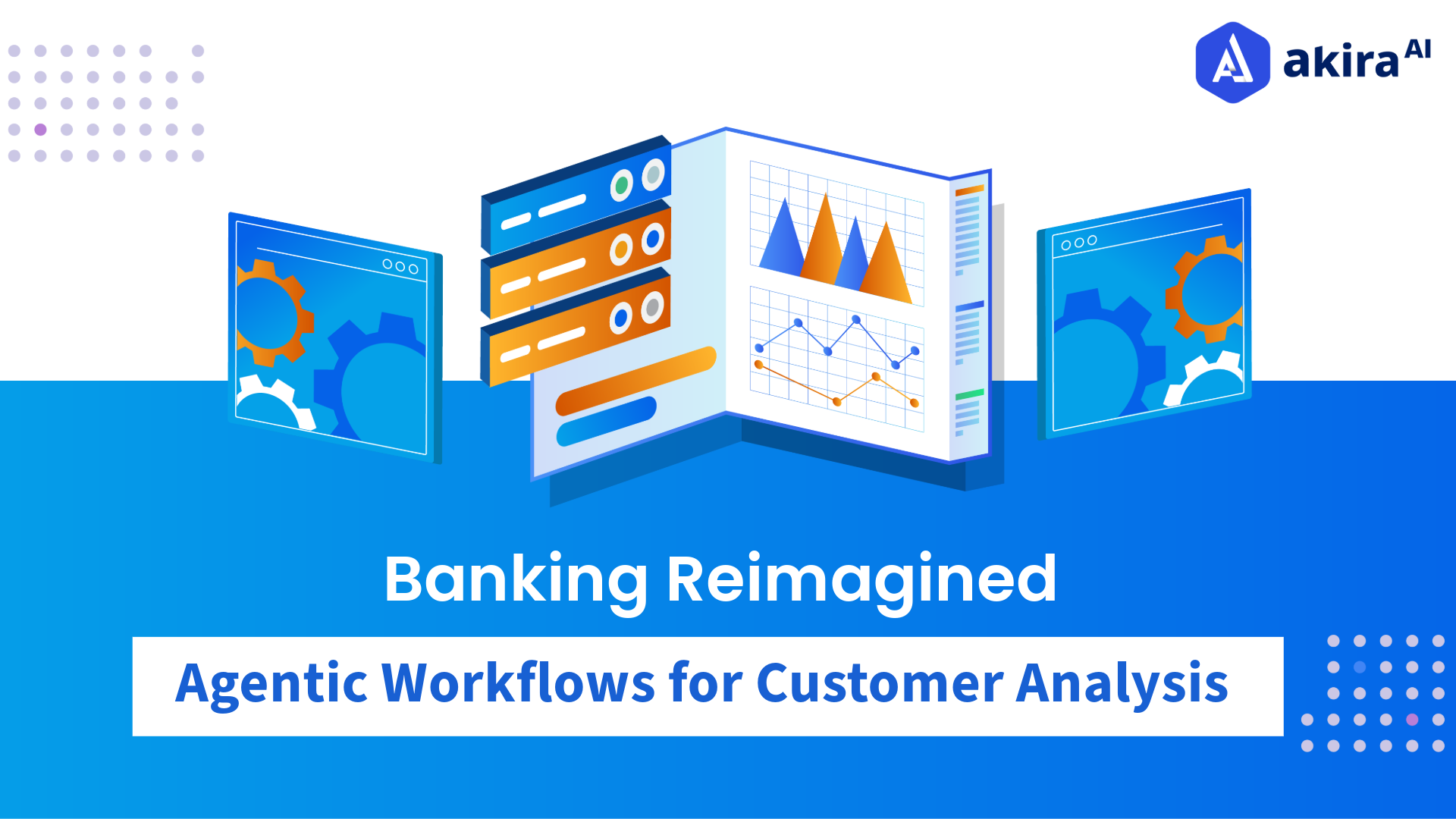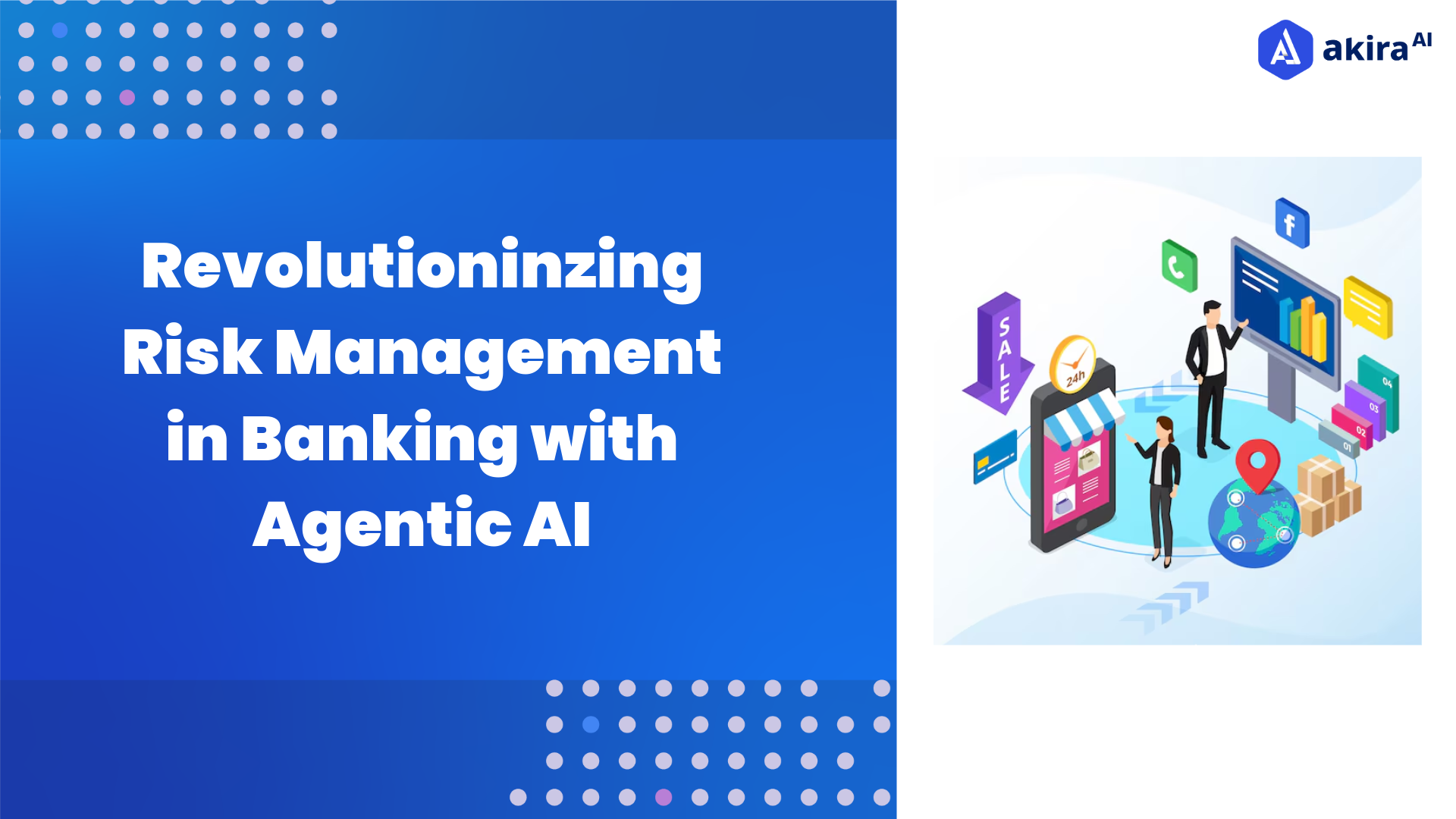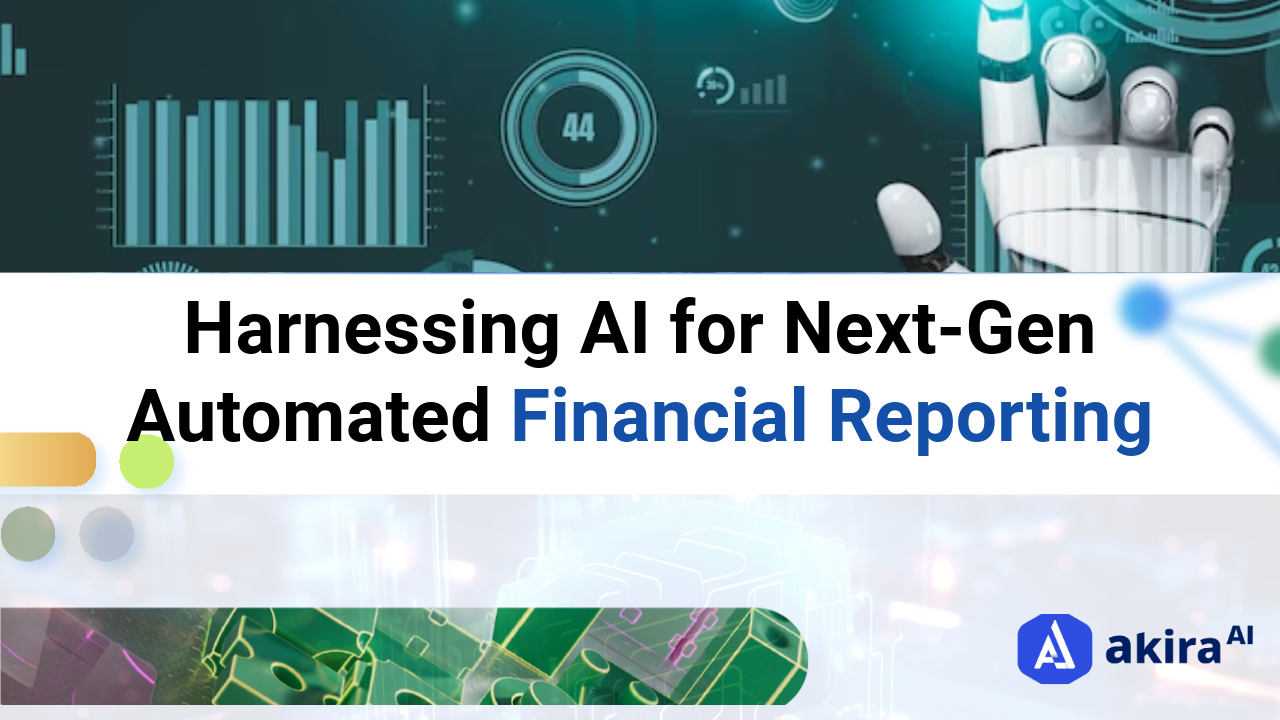In today's competitive banking landscape, personalization is a critical driver for customer retention and satisfaction. The advent of AI agents, particularly through agentic AI and agentic workflows, has enabled banks to move beyond traditional recommendation systems. These AI teammates leverage autonomous operations to deliver hyper-personalized financial solutions that align with individual goals and preferences. By integrating multi-agent systems, banks can now offer timely and tailored recommendations, driving customer engagement and unlocking new growth opportunities.
What are Personalized Recommendations in Banking?
Personalized banking recommendations would encompass the financial products and services that every person needs, which include savings accounts, loans, investments, or credit offers. Traditionally, this personalization was achieved either through small segmentation or requests by the relationship manager in mammoth institutions not easy to scale. Improvements in AI have enabled banks to predict and recommend relevant products based on real-time data, behavior, and market trends.
Overview of Personalized Recommendations in Banking
AI agents are autonomous systems designed to perform specific tasks by analyzing data, learning patterns, and making decisions with minimal human intervention. These agents operate through advanced technologies such as machine learning, natural language processing, and predictive analytics to automate and optimize various processes. In a multi-agent system, each AI agent specializes in different roles, working collaboratively to deliver efficient, scalable solutions. By leveraging agentic AI and agentic workflows, these agents handle complex operations in real time, ensuring higher accuracy and adaptability across diverse use cases.
Recommendation-personalized centers focus much on AI agents and personalize the general financial solution regarding specific real-time customer data. In the application, for instance, the transaction history of the customer and his or her spending behavior together with financial goals are considered as custom advice to present about investment opportunities, loan offers, or savings strategies. With agentic AI, banks can end their reliance on rule-based segmentation and transition to very dynamic, personalized recommendations. AI agents improve customer engagement by providing relevant, timely suggestions to enhance satisfaction and deepen financial relationships.
Traditional vs. Agentic AI-Driven Personalized Recommendations
|
Aspect |
Traditional Solutions |
Akira AI’s Agentic AI Solutions |
|
Data Approach |
Rule-based systems relying on predefined data |
The multi-agent system provides dynamic, real-time insights |
|
Process Automation |
Manual or semi-automated processes |
Fully autonomous operations with minimal human intervention |
|
Customer Segmentation |
Limited customer segmentation |
Deep personalization enabled by agentic workflows |
|
Data Analysis |
Historical data analysis |
Real-time data processing and predictive analytics |
|
Response Time |
Slow and delayed response times |
Instantaneous, AI-driven decision-making |
|
Scalability |
Struggles with scalability due to manual input |
Easily scalable with multi-agent systems handling high volumes |
|
Adaptability |
Limited adaptability to new data or market trends |
Continuous learning and adaptation to changing customer needs |
|
Customer Engagement |
Generic and less engaging recommendations |
Highly personalized interactions that boost customer engagement |
|
Cost Efficiency |
Higher costs due to manual processes |
Reduced operational costs through automation and efficiency |
|
Accuracy |
Low accuracy due to reliance on historical data |
High accuracy with real-time data and predictive models |
|
Customer Satisfaction |
Limited satisfaction due to lack of relevance |
Increased satisfaction through personalized, timely recommendations |
|
Cross-Selling Opportunities |
Missed opportunities due to limited insights |
Enhanced cross-selling with AI predicting customer needs proactively |
|
Fraud Detection |
Reactive and slower to detect issues |
Proactive fraud detection with real-time monitoring and AI alerts |
|
Compliance and Risk Management |
Requires manual oversight and intervention |
Automated risk management and compliance checks through agentic workflows |
How Do AI Agents Deliver Personalized Banking Recommendations?
-
Autonomous Data Collection: Data is autonomously assembled by AI agents from sources such as customer transaction history, spending habits, and financial preferences. Constant data gathering ensures that personal financial behaviors are rich and highly comprehensive.
-
Real-Time Data Analytics: AI agents thus immediately set trends because of agentic workflows that analyze massive information. That is how they can thus make informed decisions to give real-time recommendations.
-
Predictive Insights: The AI agents predict future requirements of customers such as what the customer might need loans for or upcoming investments. This way, they can provide proactive recommendations meant for the customer's eventual financial situation.
-
Tailor-made financial products: They can also offer tailored services, like investment plans, loans, or savings. The counsel given should be relevant and worth it as it will be based on a customer's financial profile.
-
Continuous Learning and Adaptation: AI agents continuously learn from customer interactions and update their recommendations accordingly. This dynamic approach ensures that personalized advice evolves with the customer’s changing financial behavior and market conditions.
Use Cases of Personalized Banking Recommendations .jpeg?width=1920&height=1080&name=image(1).jpeg)
Fig 1: Use Cases Of Personalized Banking Recommendations-
Credit Score Monitoring and Loan Offers: Monitoring a customer’s credit behavior enables alerts for potential loan opportunities based on improvements in their credit score. When customers enhance their scores or meet certain thresholds, they receive personalized loan options. Additionally, tailored advice is provided on steps to improve creditworthiness, helping customers become more eligible for loans.
-
Investment Portfolio Recommendations: Banks can analyze a customer's financial data, including risk tolerance and investment goals, to offer personalized investment strategies. These recommendations are crafted to align with the customer's overall financial situation and are continuously updated as conditions change, ensuring effective portfolio management that adapts to market dynamics.
-
Real-Time Fraud Alerts and Prevention: Continuous monitoring of transaction patterns allows for the detection of anomalies that may indicate fraudulent activity. Customers receive instant alerts when suspicious transactions are identified, along with advice on securing their accounts and preventing future fraud incidents. This proactive approach significantly reduces the risk of financial losses.
-
Savings Optimization: By analyzing income patterns and spending habits, personalized savings strategies can be recommended to help customers reach their financial goals. These strategies are tailored to individual circumstances, making it easier for customers to manage their finances and meet milestones, such as saving for a vacation or building an emergency fund.
-
Insurance Policy Suggestions: Personalized insurance recommendations can be offered based on factors such as life stage, income level, and financial responsibilities. For example, young professionals might receive suggestions for health insurance, while families may be guided towards life insurance policies, ensuring that coverage aligns with their current needs and plans.
-
Cross-Selling Financial Products: Analyzing customer financial behavior provides insights for suggesting complementary products, such as credit cards or savings accounts. These targeted recommendations are tailored to the customer’s spending habits, increasing the relevance of the offerings and enhancing the likelihood of successful cross-selling.
-
Retirement Planning: Dynamic retirement planning advice incorporates real-time changes in income, expenses, and market conditions. Customers receive tailored strategies that evolve alongside their financial situations, ensuring that their retirement plans remain robust and adaptable to changing life circumstances and economic factors.
Akira AI Multi-agent In Action
Akira AI’s personalized recommendation workflow automates the customer engagement cycle using an agentic workflow with specialized AI agents. Each agent is designed to analyze customer data and generate tailored financial advice, enhancing the overall banking experience.
-
Data Integration: The process begins with the Master Orchestrator Agent, which coordinates the flow of data from various sources, including customer, product, and market data. This multi-agent system ensures seamless integration of diverse data sets, setting the foundation for effective personalization through agentic AI.
-
Customer Profiling: The Customer Profiler Agent analyzes incoming customer data to create detailed profiles, segmenting customers based on their behaviors and preferences. This agentic workflow enables a more personalized approach to customer interactions, paving the way for targeted recommendations.
-
Product Recommendation: Utilizing the insights from customer profiles, the Product Recommender Agent generates personalized recommendations. By employing machine learning algorithms, this agent ensures that suggestions are tailored to each customer’s unique financial needs, demonstrating the capabilities of agentic AI in delivering relevant solutions.
-
Risk Assessment: The Risk Assessment Agent evaluates potential risks associated with the recommended products, considering both customer history and market data. This step ensures compliance and helps mitigate financial risks, reinforcing the importance of a robust multi-agent system in providing secure banking solutions.
-
Personalized Offer Generation: Finally, the Personalized Offer Generator Agent creates tailored offers that balance appeal and profitability. The Notification Agent manages the delivery of these offers across optimal channels while tracking customer responses, completing the agentic workflow by ensuring timely and effective communication of personalized customer offers.
Operational Benefits of Agentic AI in Personalized Banking
-
Real-Time Decision Making: An AI agent can process the kind of huge real-time customer data and get the right product recommendation within a minute from a bank. It further increases the engagement among customers since they have suggestions ready that go well with the user's present needs, like recommending a travel card if a person travels frequently.
-
Scalability: It is quite scalable as millions of transactions and customer profiles can be dealt with without the constraints thrust upon traditional systems. As banks expand and cater to an increasingly larger customer base, such AI solutions could evolve to include their needs while maintaining personalized recommendations that remain effective and prompt.
-
Low Cost: Automatic recommendation via AI reduces the operational costs and overheads of the delivery side caused while processing manually. The banks can then use the personnel in a better manner regarding work and further utilize resources toward innovation and effective customer service.
-
Customer satisfaction increased: Proper and personalized recommendations make a customer's experience richer, so clients are valued and understood. Furthermore, if banks produce targeted suggestions from the specific financial goals of customers, banks can increase loyalty more referrals, and a stronger reputation in the marketplace end.
-
Increased Revenue Opportunities: It finds cross-selling opportunities through highly detailed data about the customer, with proper suggestions for complementary products, ensuring the overall banking value proposition is enriching. For example, whenever a customer saves for some goals, the AI may offer that customer high-yield savings accounts and thereby encourage long-term relationships through customized offerings that satisfy their need.
The Future of AI Agents in Personalized Banking
-
Hyper-personalization with AI agents: With increased AI technology, the agents will see hyper-personalization because the algorithms from machine learning and analysis of various data related to that customer will be given. This will make it possible for banks to predict the needs of each one of their customers to cement relationships that guarantee satisfaction.
-
Better Data Privacy: Such advancements open up a need for even higher demands on development towards more secure, privacy-compliant AI systems. The future of AI solutions lies in strong and integrated data protection mechanisms with insightful perception and personalized recommendations.
-
Integration with Digital Wallets and Payment Systems: AI will natively integrate with digital wallets, enabling personalized recommendations in-app during transactions. It can make life even easier for customers while opening up opportunities for banks to offer mass-personalized promotions that drive loyalty.
-
AI-Powered Advisory Services: After this comes AI-powered virtual financial advisors, which will eventually become mainstream, and offer their clients personalized advice on finance around the clock. They will interpret individual conditions and market trends to make effective financial advice available to their clients.
-
Voice-Controlled Banking Services: Voice-activated AI agents would alter the way a customer interacts, and offer financial advice through conversational interfaces for convenience and efficiency, leading to guides that could help the customer connect their financial information and personalized recommendations without being involved in the interaction process.
Conclusion: Personalized Recommendation
Integration of AI agents into personalized bank services is one such shift that changes the face of banking. Using agentic flows and advanced technologies, banks can be able to develop hyper-personalized customer experiences, thus improving the customers' level of satisfaction and loyalty. Since these systems are evolving to offer data privacy and become thoroughly integrated with digital platforms, they will indeed change how financial advice is provided. Among such innovations, apart from efficiency in operations, new revenue streams are to come along with others that prepare banks for the future.


